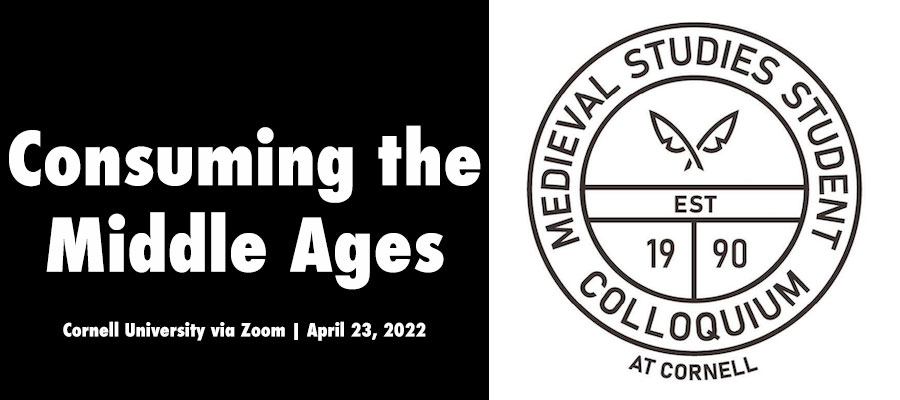Consuming the Middle Ages, 2022 Medieval Studies Student Colloquium, Cornell University via Zoom, April 23, 2022
The Medieval Studies Program at Cornell University is pleased to announce its thirty-second annual graduate student colloquium (MSSC), which will focus on the theme of ‘Consuming the Middle Ages’. The conference will take place on the 23rd of April, to be held virtually over Zoom. The colloquium will be preceded by a small lecture series.
We invite 20-minute papers that investigate consuming the Middle Ages as defined within a range of different disciplines and perspectives. Consuming can denote both physical consumption as well as the act of consuming and making sense of the medieval past through scholarly productions, creative media, and cultural phenomena and practices. How were medieval feasts organized and what socio-cultural function did food and the act of consuming it serve? What are possible connections between the life cycle stages of consumed goods (e.g., from cultivation to processing, to consuming, to disposal, etc.) and climate, migration, economics, etc.? What material and immaterial substances were subject to consumption and what religious or cultural roles did they play? How do postmedieval writers and thinkers configure the medieval? What are the ramifications of consuming the past and is this the nature of periodization? How are the traces, artifacts, or influences from the medieval past consumed by later or contemporary individuals, communities, and cultures? Papers may respond to (but are not limited to) one of these questions.
Preference will be given to papers from underrepresented backgrounds and disciplines. We strongly encourage submissions that expand these themes and categories of inquiry beyond Christian, Western European contexts. We invite submissions in all disciplines allied to Medieval Studies, including Asian Studies, Africana Studies, Critical Race Studies, Indigenous Studies, Near Eastern Studies, literature, history, the history of art, archaeology, philosophy, classics, theology, and others. Abstracts on all topics will be considered, though priority will be given to those which address our thematic strand.
